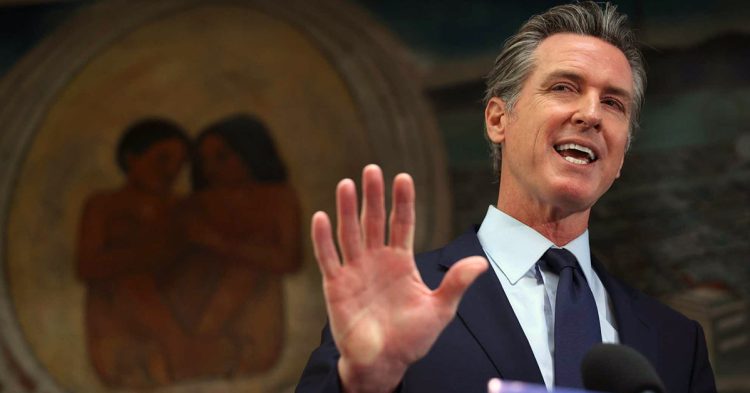California Governor Gavin Newsom recently introduced new hemp product regulations, emphasizing the urgent need to safeguard children from the risks posed by intoxicating substances. Developed by the California Department of Public Health (CDPH), these regulations seek to ban the sale of hemp products that contain intoxicating cannabinoids, including THC.
“We cannot stand by while dangerous hemp products containing THC target our children in retail stores,” Newsom said on September 6. “We are closing loopholes and enhancing enforcement to stop children from accessing these hazardous products.”
The proposed regulations would prohibit the sale of hemp consumables with detectable levels of THC or other intoxicating compounds and restrict packages to five servings. These hemp product regulations also limit the sale of hemp-based foods, beverages, and supplements, including CBD products, to consumers over the age of 21.
The governor’s office pointed out that these emergency hemp restrictions address a growing number of health incidents linked to intoxicating hemp products, which are commonly sold in gas stations, smoke shops, and convenience stores. Children are especially vulnerable to the negative effects of these products, which can impair cognitive functions, memory, and decision-making in young, developing brains.
“Intoxicating hemp products pose a significant health risk to California consumers,” said CDPH Director Tomás Aragón. “Our aim is to ensure that products in the market meet safety standards and comply with state laws to protect public health.”
Newsom’s office further clarified that while cannabis is already regulated in California, the federal legalization of hemp in 2018 allowed intoxicating products to be sold more freely, necessitating these new hemp product regulations to prevent harm to children.
“The Department of Cannabis Control welcomes these regulatory reforms,” stated Nicole Elliott, director of the state’s cannabis regulatory agency. “These steps will help align products with state laws, and we are committed to working with our partners to ensure compliance.”
Louis Samuel, CEO of Golden State Cannabis, a licensed cannabis delivery service, applauded the emergency THC product ban. “This action addresses a regulatory gap that allowed unregulated hemp products to avoid safety checks and excise taxes,” Samuel wrote in an email. “Hemp-derived THC should be regulated like cannabis-derived THC, as they are chemically identical. Closing this loophole is crucial for consumer safety and the legal cannabis industry.”
The emergency hemp product regulations were proposed shortly after the failure of AB 2223, a bill designed to regulate hemp products, in the state legislature. Pending approval from the Office of Administrative Law, these new rules will take effect immediately.
Dr. Lynn Silver, senior advisor at the Public Health Institute, voiced her support for the regulations, noting that they represent a critical step in protecting minors. “Currently, children can purchase intoxicating products with higher THC levels than what’s allowed in regulated cannabis edibles,” Silver told the Los Angeles Times. “These hemp restrictions are an important measure to address this issue.”
Should the regulations be approved, retailers will be required to remove any hemp products containing detectable levels of THC from store shelves and enforce stricter age limits, ensuring that no one under 21 can purchase them. Enforcement of these THC product bans will be carried out by various state agencies, including the CDPH, Department of Cannabis Control, and local law enforcement.
“The Department of Alcoholic Beverage Control will ensure that licensed establishments comply with all new laws,” said Joseph McCullough, director of the agency. “We will notify stakeholders to help them remain in compliance once the regulations are in place.”
However, not everyone is on board with the proposed regulations. The U.S. Hemp Roundtable, a national industry group, has voiced its opposition. Jonathan Miller, the group’s general counsel, called Newsom’s actions a betrayal of California’s hemp farmers and small businesses. “After supporting AB 45, which created a sensible framework for hemp regulation, the Newsom administration has now failed to enforce it,” Miller wrote. “Instead of addressing valid concerns, the governor has proposed a near-total ban on hemp products, including non-intoxicating CBD items.” Miller also warned that this action could lead to significant losses in tax revenue from the hemp industry.
As discussions continue, the hemp industry is exploring legal actions to oppose the regulations, which they argue could harm a multi-billion-dollar sector and impact local farmers and businesses.









